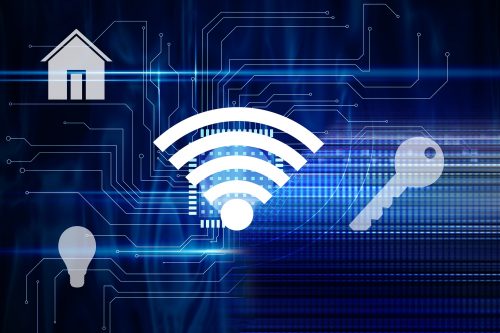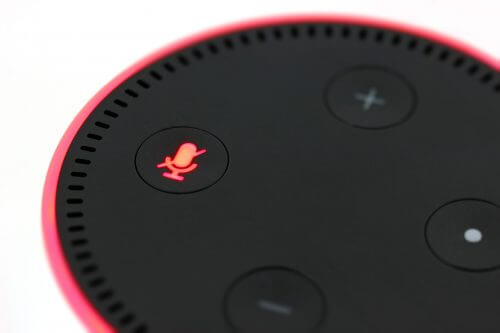Sales of smart home products are expected to double in less than five years and reach more than 50 billion dollars a year. Will the smart control of electrical products help in reducing electricity consumption, or rather increase consumption and damage to the environment?

By Assaf Ben Naria, Angle, Science and Environment News Agency
In the near future, will the refrigerator talk to the microwave, the electric heater send messages to the air conditioning system, the lighting system will be connected to the television, and everyone will exchange experiences on the small screen of the tablet? According to the CES technology exhibition held last January in Las Vegas, the answer is yes - and by and large. This year's exhibition was marked by the automation of home electrical appliances, which is included under the category of "smart home" systems.
Until that happens, today you can already find a wide variety of smart home systems on the market that can be controlled using the mobile phone. How can such a change affect household electricity consumption and greenhouse gas emissions? The answer, as in many cases, depends on how it is used.
Alexa, pay the electric bill
The power generation industry It is the largest source of greenhouse gas emissions in Israel. In 2015, the burning of fuels for the purpose of energy production was responsible for 52 percent of the greenhouse gases emitted into the air in Israel as a result of burning fuels. as per The government plan to reduce greenhouse gas emissions and optimize energy consumption, by 2030 per capita greenhouse gas emissions will be reduced by 26 percent compared to 2005. One way to do this is through a transition to electricity production from renewable sources, such as the sun, waves and wind; And a large part of the reduction should be achieved by reducing electricity consumption - at least by 17 percent compared to what was expected in the "business as usual" scenario, a scenario in which the government does not take steps to reduce consumption.
The household sector is one of the largest consumers of electricity in Israel: household consumers use By about 30 percent of the total electrical energy produced. Therefore, reducing household electricity consumption is very important in the fight to reduce greenhouse gas emissions. Encouraging the purchase of energy-efficient electrical appliances and scrapping old and inefficient appliances, along with educating the public on saving electricity, are some of the measures taken by the various authorities in order to encourage us to consume less electricity; But in the meantime, due to the rate of population growth and the increase in the standard of living, almost every year a new record is broken in electricity consumption.
While at the national level things are moving slowly, new products in the private market are showing significant potential for energy savings. In recent years, technologies that belong to the "smart home" category are gaining momentum and a user base that is growing every year.Evaluations They are talking about the fact that within five years, sales of the smart home products will reach over 50 billion dollars per year (compared to 24 billion in 2016).
One of the best-known and oldest devices on the market for controlling the electrical systems at home was developed by Amazon. This is the virtual assistant that goes by that name Alexa, which was used, in the beginning, to play music by voice commands. Amazon recently introduced the Amazon Echo, a device that allows you to control the temperature in the house, the lighting, the entertainment systems, smart sockets, and the list keeps getting longer. Already today, you can find a variety of systems that allow you to control all the smart devices in the home. The means are connected to the network and it is possible to control them through the computer, the mobile phone or through a central monitor installed at home. According to various estimates, Not far today That those devices will have artificial intelligence (AI), will communicate with each other and exercise judgment, just like the autonomous car.
With too many smart measures, and the electricity savings are canceled

Along with the promising capabilities, some of which seem to have been taken from a science fiction movie, this is apparently a player that can bring about a significant reduction in electricity consumption in homes. It will allow us to detect anomalies in real time in electricity consumption, and we can use it to turn off the boiler that was left on. On the other hand, one should not forget that all those means that turn the house into a smart house are actually electrical devices that continuously consume electricity to enable communication, measurement and control. When it comes to a large number of systems, this power consumption becomes significant.
study who examined the electricity consumption of the smart sockets and the meters in the house where 21 electronic devices were installed, found that over a period of five years, their consumption was 4,558 kWh. This, of course, does not include the power consumption of the devices themselves, but only the means of control and control. This is a significant amount of over 900 kWh per year, an amount that could run a large refrigerator for an entire year. At the current price of electricity (54 agorat per kWh), this is a cost of about NIS 500 per year for the smart systems only. The smart home systems become economical, of course, only when they save more electricity than they consume.
It should not be concluded that a smart socket or sensor cannot reduce the overall power consumption. In many cases, the energy savings are so significant that the financial investment in buying the smart product is returned within a few months. But rather A multitude of smart measures, especially when it comes to means whose contribution to saving electricity is marginal, as well as the actual use of them, can Cancel the savings which is achieved by the socket and the sensor that actually contribute. While a temperature sensor that regulates the activity of the air conditioner or a smart controller that controls the water heater can reduce the waste of electricity, gimmicks like smart lighting that changes the lighting shade depending on the time will only inflate the electricity bill.
The conclusion reached by the researchers is that even from an environmental point of view, the smart home systems do not lead to a reduction in greenhouse gas emissions. Although, according to the findings, when it comes to installing only one smart meter, the financial (energy) savings pay for themselves after three months, and in terms of carbon dioxide emissions, the device balances itself after 11 months; But when it comes to a relatively large number of smart devices, the researchers emphasize that a balance must be found between what really justifies a control device and the power consumption of the control devices - a rule of thumb that is true for Finland, where the study was conducted, and everywhere else.
"First let it be green - and only then smart"
Hila Binish, CEO of the Israeli Green Building Council, regards smart home technologies positively and sees them as systems that help manage resources in an optimal way. "The technological means make it possible to reduce the use of energy. In addition, they enable monitoring - a means that helps to be more efficient and save", she says. However, according to her, technology is just another layer in everything related to a green house, and the basis is first of all optimal planning of the structure in terms of openings, ventilation, shading, insulation and sealing. When all these are present, then it is possible (and wise) to add the smart home technologies.

2 תגובות
Definitely agree that a smart home is the future.
Both in terms of saving electricity and in terms of comfort.
The only device that might be able to save electricity is a smart electricity clock that studies and monitors consumption and with a smart algorithm knows how to warn if there is anything unusual. All other smart devices just waste additional electricity themselves.
The examples given are as irrelevant as forgetting the boiler...the boiler has a thermostat, even if it stays working for a few hours, the heating element will not be active most of the time and will only maintain the temperature.
Forgetting an air conditioner works with an open door is much more common and significant in terms of consequences, but requires sensors in the doors/windows, sensors to identify people in order to visit effectively.